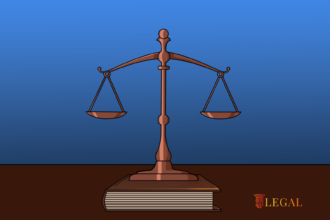
Apex Court in South Africa Sets Limits on Judges’ Power in Settlement Agreements
On 25th April 2024, the Constitutional Court of South Africa ruled that “judges should not interfere” with settlement agreements between litigants. The ruling- regarded by many as a landmark ruling-stems from a Road Accident Fund (RAF) claim of R1.3 million by one Tumelo Mafisa, which was unilaterally dismissed by the High Court.
Tumelo Mafisa a victim of a tragic accident sued RAF for compensation. Before the case was due for hearing, the parties agreed to settle and filed terms to that effect.
The High Court in a ruling however dismissed the claim, intimating the court had not been satisfied with the terms of the settlement. The constitutional court – South Africa’s apex court – on appeal, reverse the high court’s judgement stating that a court is not empowered to unilaterally amend a settlement agreement.
A compromise, whether embodied in a court order or not, generally brings an end to the dispute between the parties and that as a general rule, a Judge should not interfere with the terms of a settlement agreement. A Judge is, however, entitled to raise concerns in certain circumstances.
Lawyers Urge the Economic and Financial Crimes Commission to Avoid Media Trial
On 26th April 2024, a consortium of lawyers in Nigeria, (Guardians of Democracy) urged the Economic and Financial Crimes Commission of Nigeria (EFCC) to avoid media trial and follow due legal processes in its bid to prosecute the former governor of Kogi State, Alhaji Yahaya Bello. Bello is facing charges for his alleged involvement in money laundering, breach of trust and misappropriation of funds, to the tune of N80.2 billion.
While the trial judge, Emeka Nwite of the Federal Court of Nigeria has yet to rule on an application by the former governor challenging a warrant for his arrest, the lawyer group have urged the EFCC to play by the rules when the case is pending in court.
Harvey Weinstein conviction set aside.
This week, the 2020 sexual abuse conviction of disgrace media mogul Harvey Weinstein was set aside by New York’s Highest Court.
Mr Weinstein had been sentenced in 2020 for the sexual offence of rape, however a New York Court of Appeal reasoned that the trial judge unreasonably allowed testimonies regarding uncharged crimes and untested allegations in the course of the trial thereby prejudicing the jury and ineffectively precluding the defendant from testifying. In effect Mr Harvey was denied a fair trial.
The court speaking through Rivera J delivered itself as follows…” we conclude that the trial court erroneously admitted testimony of uncharged alleged prior sexual acts against persons other than the complainants of the underlying crimes because that testimony served no material non-propensity purpose”.










